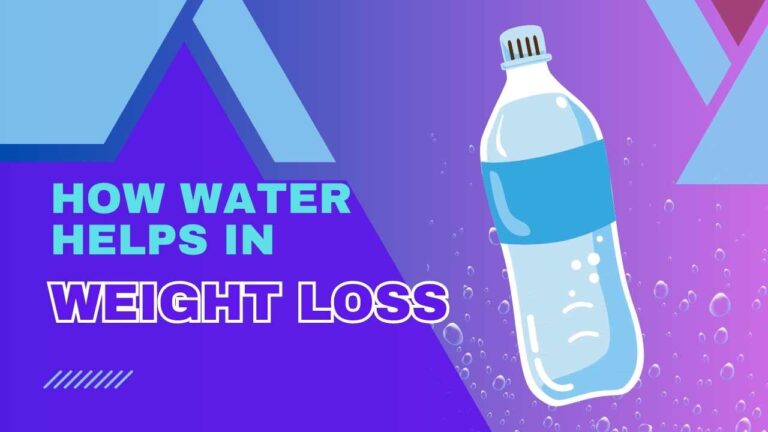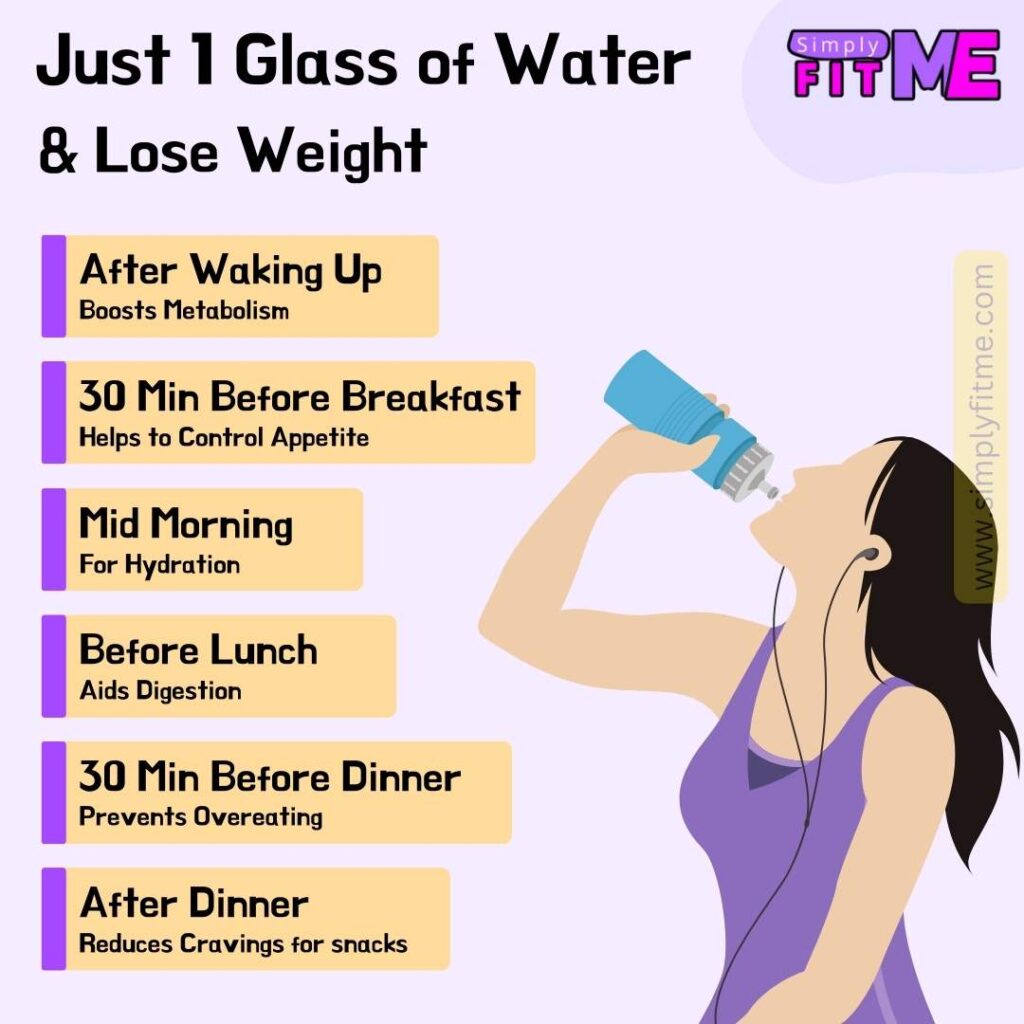Losing weight is a common goal for many individuals seeking a healthier lifestyle. While there’s no magical solution to shedding pounds, water can play a vital role in supporting your weight loss journey.
Science Behind Water for Weight Loss

Research has shown that drinking water can be a powerful tool in your weight loss arsenal:
Appetite Suppression:
One of the primary ways water supports weight loss is by suppressing appetite. A study published in the “Journal of Clinical Endocrinology & Metabolism” found that drinking 500 ml (approximately 17 oz) of water before meals increased metabolism and reduced hunger, leading to a decrease in calorie intake.
Calorie Expenditure:
The body burns energy, or calories, to heat up cold water to body temperature. This process is known as thermogenesis. A study published in the “Journal of Clinical Endocrinology & Metabolism” suggested that consuming 500 ml of water increased metabolic rate by 30% for both men and women.
Improved Digestion:
Staying hydrated is essential for proper digestion and absorption of nutrients. When you’re adequately hydrated, your body can efficiently process the food you eat, making it easier to extract essential nutrients and eliminate waste.
Reduced Liquid Calories:
Replacing sugary beverages like sodas and fruit juices with water can significantly reduce your daily calorie intake. The “American Journal of Clinical Nutrition” reported that liquid calories are less filling and can contribute to weight gain.
Water intake schedule for weight loss

Morning Routine:
Upon Waking Up: Start your day by drinking a full glass of water. This not only helps to kickstart your metabolism but also rehydrates your body after a night’s sleep.
30 Minutes Before Breakfast: Enjoy another glass of water before your morning meal. This can assist in controlling your appetite and prevent overeating.
Mid-Morning:
Mid-Morning Hydration: Stay hydrated between meals by sipping on a glass of water. It’s an effective way to maintain your body’s fluid balance and can help reduce feelings of hunger.
Before Lunch:
30 Minutes Before Lunch: Prior to your midday meal, consume a glass of water. This practice can aid digestion and prevent overindulgence during lunch.
After Lunch:
Afternoon Hydration: Continue to stay hydrated by having another glass of water after your lunch. It ensures that your body remains adequately hydrated throughout the day.
Afternoon Boost:
Mid-Afternoon Refreshment: Sip on a glass of water during the mid-afternoon hours. This can help keep you refreshed and alert, preventing energy dips and mindless snacking.
Before Dinner:
30 Minutes Before Dinner: Drinking a glass of water before dinner can help you avoid overeating and promote a sense of fullness.
Evening Routine:
After Dinner: Conclude your day with a glass of water, ensuring hydration before bedtime.
As Needed:
Adjust to Activity and Weather: Pay attention to your body’s signals. If you’re more active or in hot weather, you may need to drink more water. Listen to your body’s cues for optimal hydration.
Daily Goal:
Total Daily Goal: Aim to reach at least 8 glasses of water per day (64 ounces). However, remember that individual hydration needs can vary, so it’s essential to consult with a healthcare professional to determine the ideal water intake for your specific circumstances.
Practical Tips for Drinking Water to Aid Weight Loss
Now that we understand the science behind water and weight loss, let’s explore some practical strategies for incorporating this into your daily routine:
- Set a Daily Water Intake Goal: Aim to drink at least eight 8-ounce glasses of water per day, commonly referred to as the “8×8” rule. However, individual hydration needs vary, so consult with a healthcare professional to determine your specific requirements.
- Start Your Day with Water: Drinking a glass of water upon waking up kickstarts your metabolism and helps rehydrate your body after a night’s sleep.
- Drink Before Meals: As research suggests, having a glass of water before meals can help reduce calorie intake by promoting a sense of fullness.
- Carry a Reusable Water Bottle: Keeping a water bottle with you throughout the day makes it easier to stay hydrated and track your water consumption.
- Infuse with Flavor: If you find plain water unappealing, add slices of lemon, cucumber, or mint to infuse flavor without adding calories.
- Avoid Liquid Calories: Be mindful of sugary and calorie-laden beverages, as they can undermine your weight loss efforts.
- Monitor Your Urine: Pale yellow urine is a good indicator of proper hydration. Dark urine may signal dehydration, while clear urine may suggest overhydration.
Drinking water is a simple yet effective strategy for supporting your weight loss goals. The science behind its benefits, including appetite suppression, increased calorie expenditure, improved digestion, and reduced liquid calories, underscores its importance in your weight management journey.
